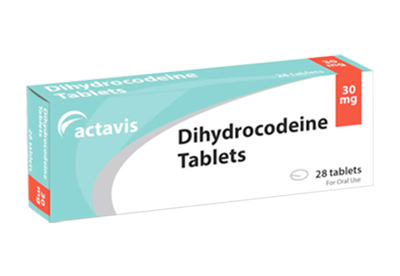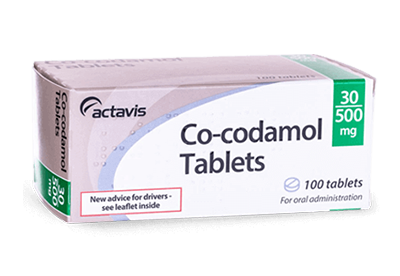Painkillers
Painkiller medication has been in use for a very long time. However, evidence of natural remedies being applied by ancient civilizations can be found thousands of years before modern medicine. Plant-based remedies like willow bark and opium the poppy were used in early civilizations by the Sumerians and Egyptians as a treatment to manage chronic pain.
-

Gabapentin
Painkillers
£37.95 - £149.95 -

Pregabalin
Painkillers
£37.95 - £159.95 -

Tapentadol
Painkillers
£39.95 - £164.95 -

Tramadol
Painkillers
£39.95 - £164.95 -

Carisoprodol
Painkillers
£38.95 - £149.95 -

Dihydrocodeine
Painkillers
£39.95 - £154.95 -

Co codamol
Painkillers
£38.95 - £149.95 -

Codeine Phosphate
Painkillers
£42.95 - £164.95
A medicinal compound called salicin was in fact the most important substance found in willow bark, and later on was isolated and transformed into aspirin. It is a popular painkiller widely used today. Morphine was created from opium in the 19th Century, and was a prodigious medical advancement.
For the relief of pain, by the end of the nineteenth century, morphine in the UK became broadly accepted for field use in medical establishments. Nevertheless, opium's narcotic properties led to the invention of heroin. Even though it remains a narcotic, it has shorter and more intense effect on the body, with a less addicting nature.
The 20th century saw the birth of drugs like ibuprofen and acetaminophen, which belong to the nonsteroidal anti-inflammatory group (NSAIDs). They provide only moderate pain relief, unlike opioids with the addictive properties.
With the emergence of potent and non-addictive drugs, these OTC products quickly became the go-to option in the UK for effectively treating low to moderate levels of pain.
The last part of the 20th century saw progress in the area of pain management, including a new generation of painkiller medications that can be divided in groups like SETRI (SSRI) and anticonvulsants (for neuropathic pain relief).
Painkiller Types
Pregabalin, tapentadol, codeine phosphate and amitriptyline painkiller drugs are used to treat various types of discomfort, and each has a different mechanism of action and list of side effects.
Pregabalin, a name which is usually associated with seizures, is primarily used for neuropathic discomfort resulting from various conditions like diabetic neuropathy or post herpetic neuralgia.
This medication operates through calcium channels in the brain, resulting in the reduction of the neurotransmitters that are used for pain signalling.
Tapentadol can be categorized as a centrally acting analgesic painkiller due to its action on both the opioid system and the noradrenergic system. This class of medications is used to treat moderate to severe acute pain, such as that following a surgery or an injury.
In addition, it is indicated as a therapy for chronic pain conditions such as diabetic neuropathy. Tapentadol acts by pairing with the mu-opioid receptor in the cerebral cortex, and suppressing the reabsorption of noradrenaline. As a result, pain is reduced for the patient.
Codeine phosphate falls into the category of opioid analgesics, and is typically used to treat mild to moderate discomfort. It acts by combining with opioid receptors in the brain which result in the blocking of pain signals, and diminish the perception of pain.
The risk of its abuse, dependence, and misuse make codeine a painkiller that is usually used for a short amount of time, or under special conditions.
Painkiller Mechanism of Action
Different painkiller drugs exert their effects through different mechanisms of action, whereby they relieve pain. Unlike opioid drugs, which bind to receptors in the central nervous system to impede the sensation of pain, non-opioids such as NSAIDs, e.g. ibuprofen and acetaminophen, prevent the formation of prostaglandins. These are molecules that contribute to inflammation and pain perception.
Lowered prostaglandin levels with the help of these drugs are key for the decrease in both pain and swelling. Opioid painkiller treatments such as morphine and oxycodone accomplish their effects by connecting themselves to specific receptors in our brain, spinal cord and other parts of the body. These receptors are called opioid receptors.
With another type of painkiller, which includes anticonvulsants such as gabapentin and pregabalin, the neurotransmitter's activity is adjusted, and the levels of GABA and glutamate are modulated. These treatments do the same thing as those that were previously mentioned, they make neurons that are firing in abnormal ways stop doing that, and relieve neuropathic pain.
TCAs (tricyclic antidepressants) like amitriptyline have antidepressant effects, but are equally useful for neuropathic pain, especially in the form of a painkiller. TCAs augment the concentrations of the neurotransmitters in the brain that aid in modulating pain.
This results in increased levels of serotonin and norepinephrine, which produce effects similar to those of opioids.
Painkiller Dosage
The varieties of painkiller treatments that may be prescribed for pain management are dependent on numerous factors such as the specific medication and its characteristics, the exact nature of the pain, differences in patients' ages, and any preexisting medical conditions.
Proper compliance with the doctor's instructions is essential to achieve pain management that is effective, and without any adverse drug reactions. The consequences of insufficient medication can lead to adverse effects and complications.
Over the counter painkiller medications like ibuprofen and acetaminophen are generally from the same manufacturer, and happen to have the recommended dosage on their labels. Dosages can also be prescribed by health care professionals. This includes the information on how often and how much of the medicine to take in a given period of time.
Failure to adhere to the doctor's orders, such as exceeding the maximum daily dosage of a medication, poses a danger to one's health, and can lead to unwanted reactions.
A good number of over-the-counter painkiller pills like Advil or Tylenol are available without a doctor's prescription, but can be harmful if taken in high doses. Thus, prescription-strength painkiller tablets, including opioids like morphine and oxycodone, must be carefully adjusted by a healthcare provider.
Painkiller Safety Consideration
Possible interactions with painkiller pills can happen if one takes them with alcohol or other substances. It also depends on the presence of underlying health conditions. These interactions often render an analgesic or painkiller ineffective or unsafe, thus increasing the chances of undesirable effects or complications.
For individuals who have specific health conditions or are on certain medications, they should either exercise care or not to use certain medications at all.
Interactions can happen if a painkiller is mixed with other medications that are also slow to leave body, such as blood pressure medicine or non-steroidal anti-inflammatory drugs (NSAIDs).
As a case in point, taking different opiates and along with central nervous system depressants such as benzodiazepines may turn out to a have a synergistic effect, and cause more sedation. This can in turn lead to respiratory depression and overdose, thus putting your life at risk.
The use of nonsteroidal anti-inflammatory drugs like ibuprofen or aspirin may come with an increased risk of gastrointestinal bleeding when they are administered jointly with anticoagulants or corticosteroids.
It can be that certain underlying conditions are a contraindication for the use of certain kinds of painkiller. One example can be someone who has a history of drug abuse and addiction. They would be at risk of opioid misuse, and of becoming dependent on them.
Side Effects of Painkiller Treatment
All medications, including pain killers, tend to be associated with adverse effects. These can manifest differently in different people. The severity of the side effects is often dependent on the type of medication, dosage, persons factors, and the duration of use.
However, it is important to understand that a painkiller may cause serious reactions in some individuals. This is why people should consult their healthcare providers if any of these reactions occur.
Gastrointestinal reactions such as stomach ulcers, bleeding, and gastritis can stem from the use of nonsteroidal anti-inflammatory drugs (NSAIDs) like ibuprofen and aspirin. This is typically seen when high doses are used, or when taking these painkiller treatments for a long time.
These drugs are likely to aggravate cardiovascular conditions (e.g., a heart attack or stroke) in people with existing heart disorders.
Acetaminophen, an over-the-counter painkiller normally regarded as harmless when taken according to the instructions on the package, can nonetheless cause liver damage or even liver failure when a person consumes too much of it. Acetaminophen overdose is characterized by acute liver failure.
Opioid painkiller pills such as morphine, oxycodone and codeine involve the risk of unfavourable effects like constipation, nausea/vomiting, drowsiness, dizziness, and slowed breathing.
Benefits of Painkiller Treatment
Painkiller medications have certainly come into view in the modern era, and have provided a much better life for patients suffering from acute or chronic pain. These drugs can help individuals by reducing pain, improving motor functions, emotions, and overall quality of life.
Firstly, these medicines help in relieving painful medical conditions, which subsequently empowers people to live a more active life, without experiencing much discomfort.
Painkiller tablets have played a significant role in enabling people who are affected by headache, soreness of muscles and chronic pain associated with conditions like arthritis and neuropathy to experience an independent lifestyle.
Similarly, the pain management offered by these drugs can result in a good mood, a clear mind, and emotional well-being. Chronic pain typically takes a toll on the mental health of a person, leading to symptoms of exhaustion, depression, anxiety, and at times may bring about an irritable nature.
To buy painkiller treatments is a safe and effective way of reducing the severity and frequency of the pain, thus achieving emotional wellness. They provide psychological comfort, which in turn enhance one`s emotional stress response and encourages a more positive outlook on life.
Furthermore, proper pain management allows for the enhancement of deep sleep and the overall quality of sleep, which is vital for the patients' recuperation and restoring their strength. Chronic pain can disrupt sleep patterns, which can lead to long term problems, including daytime fatigue.
Buying Painkiller Online in the UK
To buy painkiller medication through the internet offers numerous advantages such as accessibility, affordable prices, and patient privacy. The first benefit is the easy access, because these drugs can be purchased using just an internet connection.
Our UK online pharmacy can accept prescription and non-prescription drug orders that can be delivered to your home, saving you the trouble of needing to go to a physical pharmacy. This convenience is very much valuable for the disabled, those with busy schedules, as well as people that doesn't have reliable access to transportation.
Better selection is another crucial aspect to consider when you buy painkiller drugs online in the UK. Online drug stores provide a very convenient way of accessing a variety of medications, including special drugs. They even provide medications that are very rare, and are difficult to find in local pharmacies.
This accessibility facilitates the conditions where you can obtain the drugs required regardless of where you might be, such as in a distant area. It is also beneficial for those with difficulties in accessing brick-and-mortar pharmacies.
When contemplating whether or not to buy painkiller treatments online, it is commonly mentioned that its affordability constitutes a major advantage. UK Online pharmacies might be less expensive than brick-and-mortar pharmacies because of the lower overhead costs.
Buy Painkiller Direct in the UK
Our UK online pharmacy aims at excellent performance, and creating a secure place where you can buy painkiller medication without going through the trouble of getting a prescription. We have a wide selection of the medications, all available without the need for a prescription. The convenience and accessibility that you'll find at our online platform are unrivalled on the internet.
We have designed the system in such a way as to help make the transactions very smooth. We accept payment methods that most people prefer which is Visa, Mastercard and Bitcoin. For customers who decide to buy painkiller medication using Bitcoin, we offer free shipping and extra pills, which can be considered the icing on the cake.
Transparency and peace of mind play a major role in our services, as we aim to provide a reliable platform which allows patients to easily access their treatment. We also offer clients an order tracking number which helps them to know the status of their orders, from the purchase to the delivery itself. We will do all the work to safeguard our customers' personal and financial information.
Buy painkiller pills at healthexpressuk.com and experience pain relief at its finest.


